Business
ECOWAS set to unveil single currency’ called ECO
Published
10 months agoon
By
Ekwutos Blog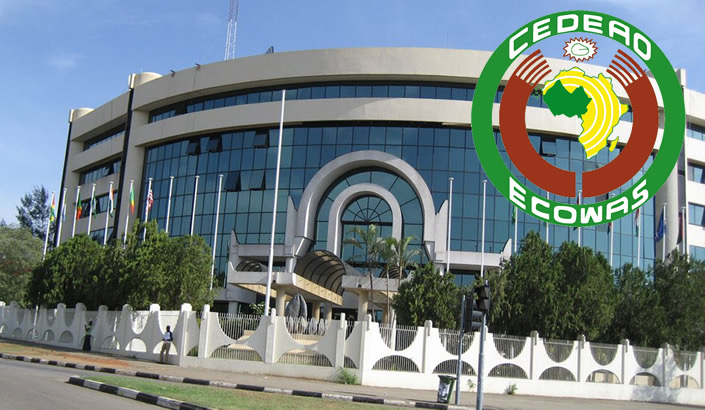
Finance Ministers and Central Bank Governors from the 15 Economic Community of West African States have advanced plans to launch the single currency initiative, known as the ECO.
This initiative envisioned to propel economic growth and development throughout the West African sub-region, received Nigeria’s endorsement.
The single currency is part of the features in the three-in-one Identity cards planned by the National Identity Management Commission and set for roll-out by August.
A statement from the Ministry of Finance signed by the Director Of Press, Mohammed Manga, on Friday, said Nigeria’s Minister of Finance and Coordinating Minister of the Economy, Mr. Wale Edun, noted the critical role the ECO will play in fostering “economic growth and development in the region,” further emphasising Nigeria’s unwavering commitment to its successful implementation.
The meeting marks a significant milestone on the path towards realising this ambitious goal.
The statement noted that participants went through the preparations for the single currency’s introduction, laying the groundwork for a more integrated economic future for the fifteen ECOWAS member states.
“The vision for the ECO extends beyond a mere currency. It aspires to become a cornerstone of economic integration, streamlining trade and bolstering monetary stability across the region.”
This week’s gathering brought together key players instrumental in making this vision a reality including the Minister of Finance of Cape Verde, Mr. Olavo Correia, the Minister of Finance and Economic Affairs of Cote d’Ivoire, Mr. Adama Coulibaly, and the Ghanaian Minister of Finance, Mr. Mohammed Amin Adam amongst other representatives.
These figures, along with others, formed a collaborative force dedicated to shaping the future of West African economics.
According to the statement, “The meeting culminated in a renewed sense of purpose surrounding the ECO’s introduction. Participants emerged with a shared belief that the single currency holds immense potential to reshape the economic landscape of the region, paving the way for a more prosperous future for all member states”.
You may like


Simon Ekpa Faces Justice: Finnish Court Approves Extradition to Nigeria
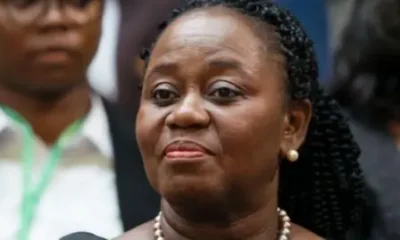

Mahama suspends Ghana’s chief justice over misconduct allegations


“Outside with Runtown” – TikTok Peller Overjoyed as he links up with Runtown for the first time!
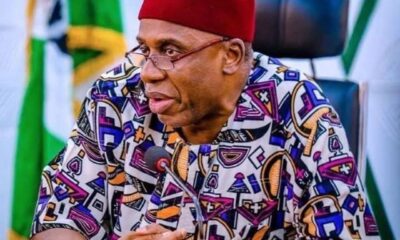

38 Years in Politics, Have you heard ‘I stole any money? My Wife Has No Personal Car -Rotimi Amaechi


Troops Avert Ethnic Violence in Plateau as Soldier Nabbed Over Car Theft in Abuja.


StyleBasketballer Kiki Iriafen’s Outfit At WNBA Draft Night Pays Homage To Her Nigerian Roots
Business
Nigeria’s electricity generation records steady drop – Report
Published
23 hours agoon
April 22, 2025By
Ekwutos Blog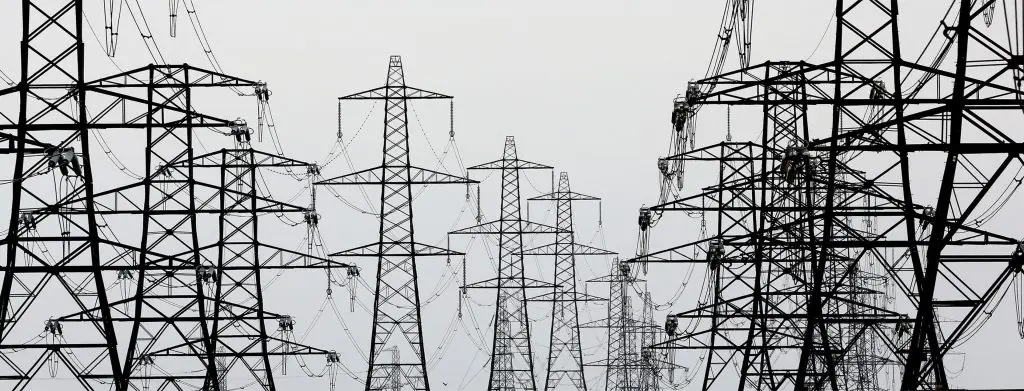
Nigeria’s electricity generation peak has recorded a steady drop to 4,742.20 megawatts in the past three days.
This is according to the National Grid performance report from Thursday, 17 to 19 April 2025.
The report showed that electricity generation dropped by 531 megawatts in the last three days.
Accordingly, the system performance data indicated that the electricity generation peak stood at 5,273.80 megawatts on Thursday but dropped to 5,131.20 megawatts and 4,742.80 megawatts on Friday and Saturday.
The development comes days after the Minister of Power, Adebayo Adelabu, announced that Nigeria hit its highest energy peak of 5,801.63 MW.
On Thursday, Adelabu reiterated that the government is doing everything to avert a collapse of the country’s power sector and plans to partly offset the N4 trillion owed to the electricity generation companies.
Business
China cuts off new investments in US private equity
Published
24 hours agoon
April 22, 2025By
Ekwutos Blog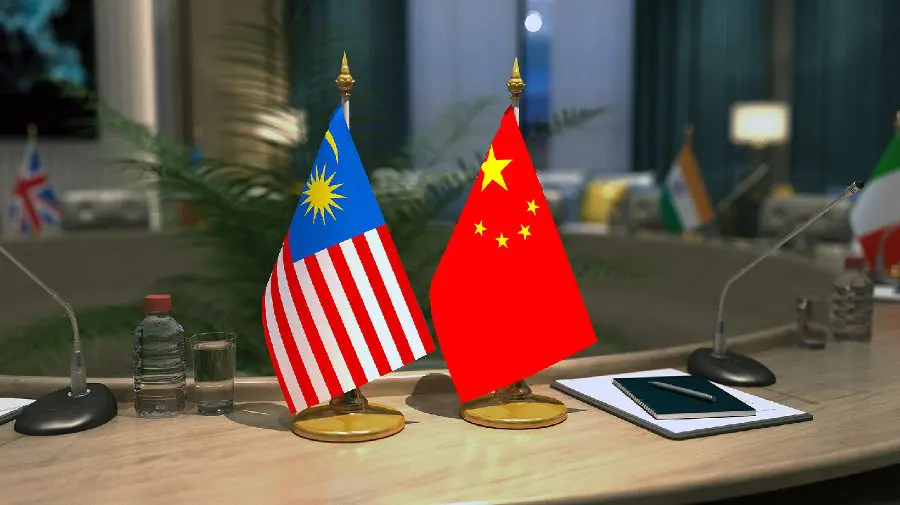
Chinese state-backed funds are halting new investments in United States private equity.
According to the Financial Times on Monday, this marks a fresh escalation in China’s response to US President Donald Trump’s trade offensive.
The report added that several large Chinese investors have recently stopped committing capital to funds managed by US-based private equity firms, a move driven by pressure from Beijing.
In some cases, investors are also asking to be excluded from US deals altogether, even when the investment is led by non-American buyout firms.
This comes as trade tensions between the world’s two largest economies continue to mount.
In the past three weeks, the Trump administration has introduced tariffs of up to 145% on Chinese goods, while China has responded with levies reaching 125%.
Earlier this month, China restricted local companies from investing in the US amid a tariff war.
Business
IMF: Nigeria will navigate global shocks due to Tinubu’s reforms
Published
4 days agoon
April 18, 2025By
Ekwutos Blog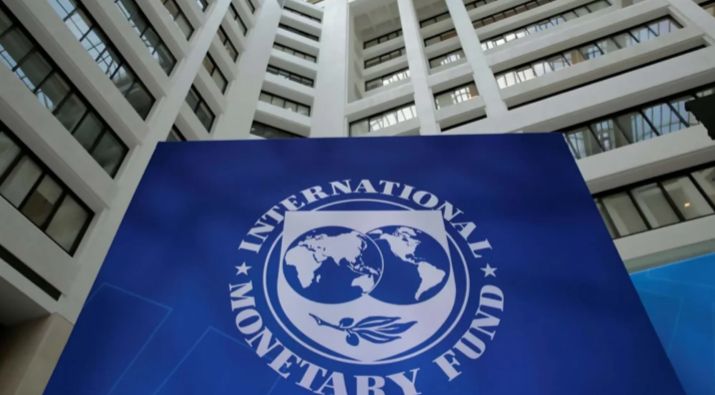
The International Monetary Fund (IMF) says Nigeria will navigate global shocks due to the reforms implemented by President Bola Tinubu.
Axel Schimmelpfennig, IMF mission chief for Nigeria, spoke during a visit to Lagos and Abuja from April 2 to 15, where he led a delegation to hold discussions for the 2025 Article IV Consultations with Nigeria.
The team met with Wale Edun, minister of finance and coordinating minister of the economy; Abubakar Kyari, minister of agriculture and food security; Yemi Cardoso, governor of the Central Bank of Nigeria (CBN); ministry of environment and other stakeholders in the private sector, academia, labour unions, and civil society.
In a statement by the IMF, Schimmelpfennig said authorities had taken “important steps” to stabilise the economy, enhance resilience, and support growth.
The steps, he noted, include ending the CBN’s financing of the fiscal deficit, removing costly petrol subsidy, and improving the functioning of the foreign exchange market.
“The Nigerian authorities have taken important steps to stabilise the economy, enhance resilience, and support growth,” Schimmelpfennig said.
“The financing of the fiscal deficit by the central bank has ceased, costly fuel subsidies were removed, and the functioning of the foreign exchange market has improved. Gains have yet to benefit all Nigerians as poverty and food insecurity remain high.
”The outlook is marked by significant uncertainty. Elevated global risk sentiment and lower oil prices impact the Nigerian economy.
“The reforms since 2023 have put the Nigerian economy in a better position to navigate this external environment. Looking ahead, macroeconomic policies need to further strengthen buffers and resilience, while creating enabling conditions for private sector-led growth.
“The authorities communicated to the mission that they will implement the 2025 budget in a manner that is responsive to the decline in international oil prices.”
‘TIGHT MONETARY POLICY REQUIRED TO CURB INFLATION’
The IMF official also recommended a neutral fiscal stance to support monetary policy in bringing down inflation.
He added that fiscal savings from petrol subsidy reforms should be channelled into the national budget to protect critical investments.
Schimmelpfennig further advised that the CBN maintain a tight monetary policy stance to curb inflation.
“In particular, adjustments should protect critical, growth-enhancing investment, while accelerating and broadening the delivery of cash transfers under the World Bank-supported program to provide relief to those experiencing food insecurity,” he said.
“A tight monetary policy stance is required to firmly guide inflation down.”
Schimmelpfennig said the monetary policy committee’s data-dependent approach has served Nigeria well and will help navigate elevated macroeconomic uncertainty.

Simon Ekpa Faces Justice: Finnish Court Approves Extradition to Nigeria

Mahama suspends Ghana’s chief justice over misconduct allegations

“Outside with Runtown” – TikTok Peller Overjoyed as he links up with Runtown for the first time!
Trending

 Trending6 months ago
Trending6 months agoNYA demands release of ‘abducted’ Imo chairman, preaches good governance
- Business6 months ago
US court acquits Air Peace boss, slams Mayfield $4000 fine

 Politics6 months ago
Politics6 months agoMexico’s new president causes concern just weeks before the US elections
- Entertainment6 months ago
Bobrisky transferred from Immigration to FCID, spends night behind bars
- Entertainment6 months ago
Bobrisky falls ill in police custody, rushed to hospital

 Politics6 months ago
Politics6 months agoRussia bans imports of agro-products from Kazakhstan after refusal to join BRICS

 Politics6 months ago
Politics6 months agoPutin invites 20 world leaders
- Politics1 year ago
Nigerian Senate passes Bill seeking the establishment of the South East Development Commission.

